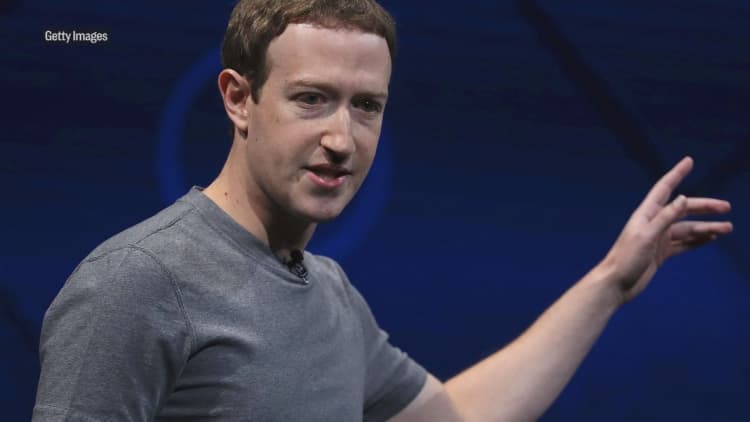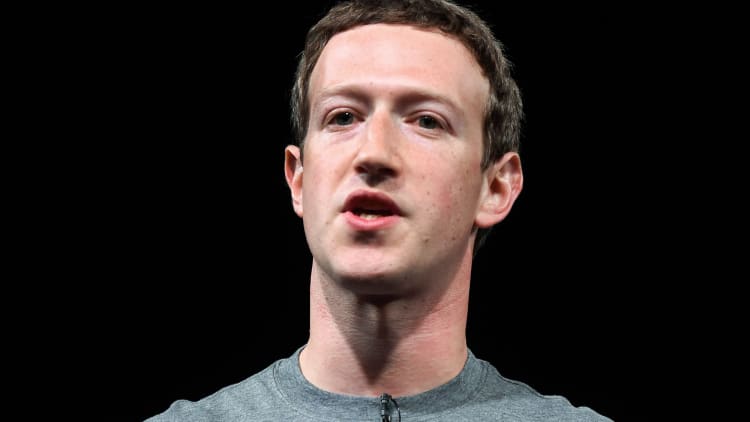
Facebook CEO Mark Zuckerberg fired back at Tim Cook, arguing the Apple CEO's recent criticism about the social media company and its handling of the Cambridge Analytica scandal was "extremely glib."
Cook criticized Facebook last week during an interview with Recode's Kara Swisher and MSNBC's Chris Hayes, saying he "wouldn't be" in Zuckerberg's situation — hemorrhaging shareholder value and facing regulatory probes.
Zuckerberg came under fire over Facebook's privacy practices in the wake of revelations that Cambridge Analytica improperly gained access to data from more than 50 million user profiles. The profile information was used for targeted political ads.
Cook last week questioned the practice of monetizing user data on social platforms. Facebook executives have long said the service will always be free for users, but that such a model requires selling advertising based on anonymous user information.

"You know, I find that argument, that if you're not paying that somehow we can't care about you, to be extremely glib. And not at all aligned with the truth," Zuckerberg said in an "Ezra Klein Show" podcast published Monday by Vox.
"The reality here is that if you want to build a service that helps connect everyone in the world, then there are a lot of people who can't afford to pay," he added. "And therefore, as with a lot of media, having an advertising-supported model is the only rational model that can support building this service to reach people."
Zuckerberg said it "sounds ridiculous" to equate charging customers with having their best interests in mind.
"To the contrary, I think it's important that we don't all get Stockholm Syndrome, and let the companies that work hard to charge you more convince you that they actually care more about you. Because that sounds ridiculous to me," he said.



